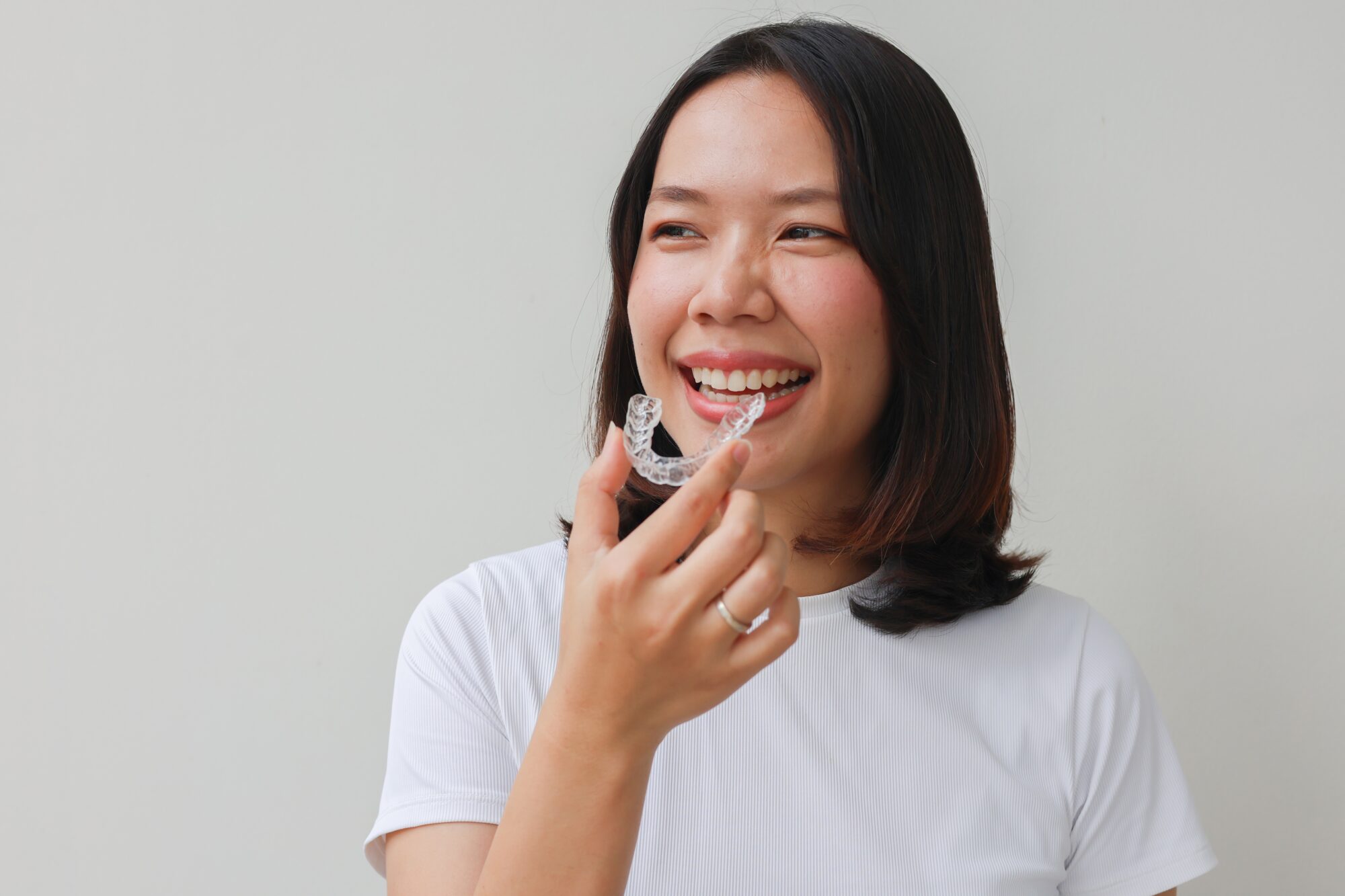Master Orthodontics is your solution for all things ortho, and that includes even the smallest smiles. Today, we wanted to talk a little about how perfectly normal infancy and early childhood habits like pacifiers and thumb-sucking can, if left unchecked, potentially impact tooth and jaw health development. There’s nothing wrong with pacifiers, and, to a certain extent, sucking their thumb is a totally normal and healthy practice very young children develop and use to self-soothe. However, the fact remains that it can be detrimental to their orthodontic health after a certain point. We’ve asked Dr. Caballero to go over some of the ins and outs of how pacifiers and thumb-sucking affect kids, so read on to learn more!
Setting the Stage – What Is Or Isn’t Healthy?
Firstly, it’s important to stress that all babies are born with the natural urge to suck – it’s vital to their development. This reflex allows them to feed, and it’s essential in calming and preparing them for sleep. That’s something that any new parent can appreciate!
So, what part should a pacifier or thumb-sucking take in a child’s development? Let’s go over a few basics. The American Academy of Pediatrics recommends:
- Offer the pacifier only when your baby is not hungry; don’t let it replace or delay meals.
- Don’t insist on the pacifier if your baby doesn’t want it.
- Never attach the pacifier to your child’s crib, neck, or hand; it is hazardous and can cause severe harm or even death.
- If your child relies on the pacifier to fall asleep, they may wake up when it falls out. If your child is too young to replace it themselves or cannot locate it within the crib’s reach, you may need to wake up and retrieve it for them.”
With that being said, some people get the misconception that thumb-sucking is inherently a bad thing or that it should be discouraged. There’s no reason to believe that, though! Some children prefer sucking their thumb to a pacifier, and that’s totally ok.
When Should Sucking Be Discouraged?
Now that we’ve talked a little about healthy sucking behavior let’s learn more about how much is too much.
The general rule of thumb (no pun intended) is two to four years. Once your child has reached the age of two, encouraging them to self-soothe a little less with a pacifier or by sucking their thumb is probably a good idea. This is because excessive sucking at this stage of your child’s development could lead to issues regarding the shape of their mouth and how the teeth come in.
Again, it’s important not to stress out too much about this – chances are that if your child stops sucking before the permanent teeth come in, any orthodontic issues will self-correct. Of course, this is specific to each child, so if sucking past this stage is particularly excessive, this could lead to issues Dr. Caballero may be needed to sort out.

Tips to Help Your Child’s Smile
As parents, one of our most important jobs is guiding our children toward healthy habits, including transitioning away from pacifiers and thumb-sucking. While it’s important not to create stress or shame around these behaviors, gently encouraging your child to stop sucking can help prevent potential orthodontic issues. Here are some strategies to support your child’s transition:
- Positive Reinforcement: Acknowledge and praise your child’s efforts when they refrain from sucking their thumb or using a pacifier. Offer small rewards or create a fun chart where they can mark their progress. Celebrating their achievements can motivate them to continue making positive changes.
- Distraction Techniques: When you notice your child reaching for their thumb or pacifier, provide alternative activities or toys to keep their hands and mind occupied. Engaging them in a game, puzzle, or creative activity can redirect their attention away from the habit.
- Open Communication: Talk to your child about the importance of growing up and caring for their teeth. Explain that quitting sucking habits will help them have a strong, beautiful smile. Encourage them to share any concerns or feelings about stopping and reassure them that you are there to support them throughout the process.
- Role Modeling: Children often mimic the behaviors they observe in their parents and older siblings. Show them how you manage stress or find comfort without relying on oral habits. You can inspire your child to follow suit by being a positive role model.
- Gradual Weaning: If your child is particularly attached to their pacifier or thumb-sucking, consider implementing a gradual weaning process. Start by limiting their time with their pacifier or thumb each day, gradually decreasing it. This method allows them to adjust at their own pace.
- Engage a Professional: If you find that your child continues to rely heavily on sucking habits despite your efforts, it may be beneficial to consult an orthodontist like Dr. Caballero. They can provide personalized guidance and support, offering additional strategies to help your child break free from the habit.
Remember, every child is different, and the process of quitting sucking habits can vary. Patience, understanding, and consistency are key. By implementing these gentle strategies and working closely with your child, you can help them transition to a healthier and happier smile.

Call Today For More Tips!
And there you have it! Thanks so much for reading up on your child’s oral health with your smile solution experts at Master Orthodontics. Dr. Caballero feels blessed to have the opportunity to provide cutting-edge care in Bremerton, Port Orchard, and Gig Harbor, and we’re always thrilled to help our amazing patients in any way!
Give us a call at (360) 692-4811 in Bremerton, (360) 895-9099 in Port Orchard, or (253) 851-8890 in Gig Harbor, or just fill out this convenient online form, and we’ll use your totally free smile analysis to get you started on the smile of a lifetime! We’ll see you soon!




